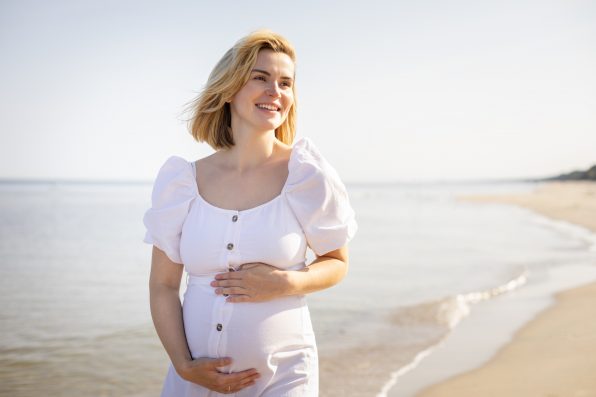A Viral Infection While You’re Pregnant May Cause Your Baby To Have Autism

For years, the origins of autism have been a puzzle that scientists have struggled to solve. It is well-known that genetic factors play a role. In fact, they account for 40 to 80 percent of cases. But the other causes have remained unclear.
However, a new study has uncovered evidence that could change what scientists know about autism.
Researchers at Cold Spring Harbor Laboratory (CSHL) have found that a viral infection during pregnancy may cause developmental issues, namely autism, in unborn babies.
“The model we use is very well-established for autism spectrum disorder,” said Irene Sanchez Martin, a postdoctoral researcher at CSHL.
“The difference in my work is that I check what happened to the fetuses 24 hours after exposure to maternal inflammation, rather than analyzing the behaviors of the offspring as adults.”
Sanchez Martin and colleagues use mice for their autism research. Instead of waiting to observe behaviors in fully grown mice, they look into the earliest stages of fetal development, just a few hours after a simulated viral infection in pregnant mice.
Such an approach has never been done in autism studies before. This kind of research might lead to physicians one day being able to identify early warning signs of autism before a child is even born.
So, how can a viral infection lead to developmental issues in the womb? When a pregnant woman catches a virus, her immune system immediately goes into action to fight it off.
The response is necessary for the mother’s health, but it can have negative consequences for the fetus. This maternal immune response might be a contributing factor to autism.

leszekglasner – stock.adobe.com – illustrative purposes only, not the actual person
One of the most notable findings from the study was the differences in vulnerability to early developmental changes between genders.
The results showed that female embryos appeared to be shielded from the effects of maternal inflammation. On the other hand, up to one-third of male embryos were significantly impacted by it.
The observation is in line with the long-held understanding that autism is more prevalent in boys than girls.
Additionally, the findings give researchers more opportunity to investigate the reasons behind the gender imbalance.
As with many breakthrough studies, many new questions were raised. Hopefully, in the future, researchers will be able to determine how exactly a mother’s immune response influences fetal brain development and what protects female embryos from the effects of maternal inflammation.
There is still much more work to be done. For instance, the transition from mouse models to human embryos must be carried out, but the process is still years in the making.
Overall, this research is important because it could help improve the lives of pregnant mothers and children with autism and allow for better support strategies and outcomes.
Sign up for Chip Chick’s newsletter and get stories like this delivered to your inbox.
More About:News





